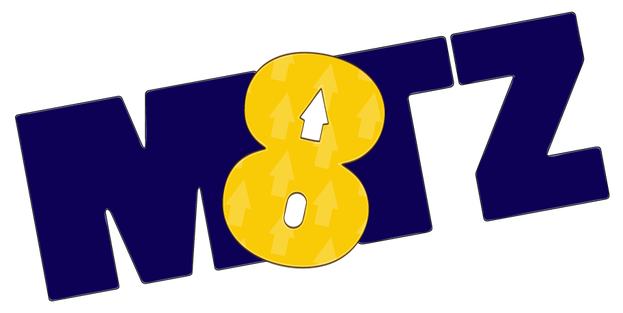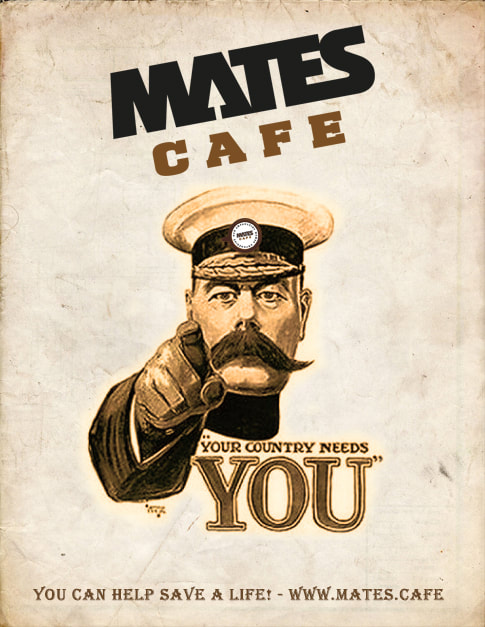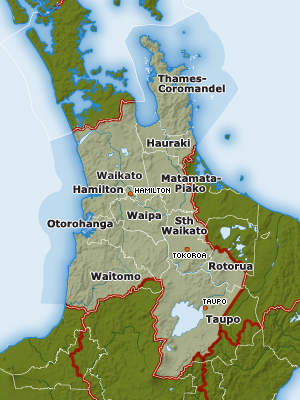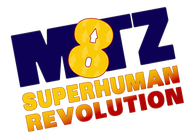You Are Not Alone - MATES Cafe South Waikato NZ
MATES Cafe is a network of everyday people of all cultures and ethnicity (including teens, elders and lgbt+) who are trained to meet with a person in crisis or isolation at a local cafe, and provide emotional support and encouragement.
MATES Cafe will empower your life so you can in turn empower the lives of others in need.
MATES are here:
To help people of all ages, gender, culture, ethnicity and personal beliefs through the challenges and tough times of life including relationship breakdown, depression, anxiety, loss and grief, bullying, loneliness and isolation. MATES are trained to be there for someone in need and helping them through a point of crisis in their life. It's not about therapy, fixing or giving advice, just simply listening and helping them to find new direction in their life.
South Waikato NZ - MATES Cafe Network
|
A Call-Out to ALL!
Can You Spare ONE Hour of Your Life to Save a Life? MATES Cafe is purely about saving lives. Do you realise one person completes suicide every 13 hours in New Zealand because they are unable to stand the emotional trauma they are undergoing, often caused by relationship breakdown. Every 4 minutes 1 New Zealander has suicidal thoughts and needs a MATE to turn to. MATES need your help to drastically lower the suicide rate... are you with us? Saving someones life can be to either:
|
South Waikato Central Region
MATES North Island Centres (Click Here) / MATES South Island Centres (Click Here)
Support Services in Waikato
LifeLine New Zealand Last updated 06/06/2013 LifeLine is here to listen to the unheard, to empower the caller to retake control of their situation, making callers aware of options rather than offering advice.
This provider offers a national helpline service.
- [email protected]
- (0800) 543 354
- (0800) LIFELINE
- http://www.lifeline.co.nz
- Availability: 24 hours a day, seven days a week.
- Charges: All services free of charge.
- Referrals: No referral required.
This provider offers a national helpline service.
- [email protected]
- (0800) 111 757
- http://www.depression.org.nz
- Availability: Helpline is available 8am to midnight daily. Website is available 24 hours a day, seven days a week.
- Charges: All services free of charge.
- Referrals: No referral required.
- (0800) 505 050
- 193 London Street
- Hamilton
- Availability: 24hr, 7 days a week crisis line.
- Charges: All services free of charge.
- Referrals: No referral required.
- [email protected]
- (07) 838 0715
- (0800) 54 33 54
- http://www.lifeline.co.nz
- Availability: Office number (07) 838 0715
- Charges: All services free of charge.
- Referrals: No referral required.
Approved Family Violence Provider
- [email protected]
- (07) 834 3148
- Thornton Court
- 135 London Street
- Hamilton
- 3204
- Availability: Office is open 9.00am - 5.00pm Monday to Thursday, 9.00am - 4.00pm Friday.
- Charges: Some charges may apply.
- Referrals: Referral may apply.
- (07) 839 7828
- 206 Collingwood Street
- Hamilton
- Availability: 8.30am - 5.00pm Monday-Friday. Outside these hours this phone number will go to National Mental Health Line. For emergencies ring (0800)505 050 .
- Charges: All services free of charge.
- Referrals: Referral may apply.
- [email protected]
- (07) 846 1042
- http://www.terunanga.org.nz
- 59 Higgins Road
- Hamilton
- Availability: 8.30am-5.00pm, Monday-Friday.
- Charges: All services free of charge.
- Referrals: Referral may apply.
- [email protected]
- (0800) VICTIM
- (0800) 842 846
- http://www.victimsupport.org.nz
- Availability: The Victim Support Service is available 24 hours, 7 days a week.
- Charges: All services free of charge.
- Referrals: No referral required.
- [email protected]
- (07) 878 5081 office
- (0800) 155 799
- http://www.womensrefuge.org.nz/
- Availability: 24 hours a day - seven days a week. Crisis only line: 0800 155 799 24 hr mobile line: (022) 020 8894
- Charges: All services free of charge.
- Referrals: No referral required.
- [email protected]
- (0800) VICTIM
- (0800) 842 846
- http://www.victimsupport.org.nz
- Availability: The Victim Support Service is available 24 hours, 7 days a week.
- Charges: All services free of charge.
- Referrals: No referral required.
- [email protected]
- (0800) VICTIM
- (0800) 842 846
- http://www.victimsupport.org.nz
- Availability: The Victim Support Service is available 24 hours, 7 days a week.
- Charges: All services free of charge.
- Referrals: No referral required.
- [email protected]
- (0800) VICTIM
- (0800) 842 846
- http://www.victimsupport.org.nz
- Availability: The Victim Support Service is available 24 hours, 7 days a week.
- Charges: All services free of charge.
- Referrals: No referral required.
- [email protected]
- (0800) VICTIM
- (0800) 842 846
- http://www.victimsupport.org.nz
- Availability: 24 hour support, 7 days a week.
- Charges: All services free of charge.
- Referrals: No referral required.
- [email protected]
- (0800) VICTIM
- (0800) 842 846
- http://www.victimsupport.org.nz
- Availability: The Victim Support Service is available 24 hours, 7 days a week.
- Charges: All services free of charge.
- Referrals: No referral required.
- [email protected]
- (0800) VICTIM
- (0800) 842 846
- http://www.victimsupport.org.nz
- Availability: The Victim Support Service is available 24 hours, 7 days a week.
- Charges: All services free of charge.
- Referrals: No referral required.
- [email protected]
- (0800) VICTIM
- (0800) 842 846
- http://www.victimsupport.org.nz
- Availability: The Victim Support Service is available 24 hours, 7 days a week
- Charges: All services free of charge.
- Referrals: No referral required.
Approved Family Violence Provider
- (07) 878 7999
- 27B King Street East
- Te Kuiti
- 3910
- Availability: Monday to Friday, 10am - 2pm, and 24hour phone service 7 days a week.
- Charges: All services free of charge.
- Referrals: No referral required.
Approved Family Violence Provider
- [email protected]
- (07) 886 5553
- (07) 886 7671
- http://www.womensrefuge.org.nz
- 36 Glencorse Street
- Tokoroa
- Availability: 24 hour crisis line 07 8865553 or 0800 Refuge Drop-in-Centre / Office Hrs 9.am - 3.pm week days
- Charges: All services free of charge.
- Referrals: No referral required.
- [email protected]
- (07) 871 8132
- (021) 718 132
- 114 Downes Street
- Te Awamutu
- 3800
- Availability: Monday to Friday, variable 4 hours per day, or by arrangement.
- Charges: Some charges may apply.
- Referrals: No referral required.
Approved Family Violence Provider
- [email protected]
- (07) 855 1569
- (0800) 733 843 REFUGE
- Availability: Office: 9- 5 Monday-Friday 24 hour crisisline 0800 733 843 REFUGE
- Charges: All services free of charge.
- Referrals: No referral required.
Approved Family Violence Provider
- [email protected]
- (07) 855 1569
- Availability: 24 hour National crisis line 0800 733 843 REFUGE
- Charges: All services free of charge.
- Referrals: No referral required.
Approved Family Violence Provider
- [email protected]
- (07) 824 5100
- 58 Great South Road
- Ngaruawahia
- Availability: 9.00am-3.00pm, Monday-Friday.
- Charges: All services free of charge.
- Referrals: No referral required.
Approved Family Violence Provider
- [email protected]
- (07) 839 4433
- (0800) 839 4433
- 33A Clarence Street
- Hamilton
- Availability: Centre hours: 9:00am - 5:00pm, Monday - Friday.
- Charges: All services free of charge.
- Referrals: No referral required.
SHINE: Safer Homes In New Zealand Everyday Inc Last updated 04/10/2012 Shine (Safer Homes In New Zealand Everyday) is making homes violence free. Shine offers a free national Helpline and a number of innovative services that work to stop domestic abuse.
This provider offers a national helpline service. Approved Family Violence Provider
- [email protected]
- (0508) 744 633
- (09) 815 4601
- http://www.2shine.org.nz
- Ground Floor
- 409 New North Road
- Kingsland
- Auckland
- Availability: Helpline ( 0508 744 633 ) is answered 9am - 11pm, 7 days a week . Our office hours are 8.30am - 5.00pm weekdays.
- Charges: Some charges may apply.
- Referrals: Referral may apply.
Approved Family Violence Provider
- [email protected]
- (07) 834 3148
- Thornton Court
- 135 London Street
- Hamilton
- 3204
- Availability: Office is open 9.00am - 5.00pm Monday to Thursday, 9.00am - 4.00pm Friday.
- Charges: Some charges may apply.
- Referrals: Referral may apply.
Approved Family Violence Provider
- [email protected]
- (07) 886 7041
- http://www.nnsvs.org.nz
- Tokoroa Community Centre, Gate 1, Tokoroa Hospital
- - Maraetai Road
- Tokoroa
- 3420
- Availability: Monday - Friday 10 am - 3 pm office hours Programmes held in the evenings
- Charges: All services free of charge.
- Referrals: No referral required.
- [email protected]
- (07) 847 2475
- (027) 501 3300
- http://www.positivechanges.org.nz
- unit 3/99 Greenwood Street
- Frankton
- Hamilton
- 3243
- Availability: Monday to Friday a/hrs mobile
- Charges: Some charges may apply.
- Referrals: No referral required.
- [email protected]
- (07) 838 3013
- Floor 1
- 46 Bryce Street
- Hamilton
- Availability: Monday - Friday, 9.00am - 5.00pm
- Charges: Some charges may apply.
- Referrals: No referral required.
- [email protected]
- (07) 889 5355
- 43 Canada Street
- Morrinsville
- 3300
- Availability: Monday - Friday 9am - 4.30pm
- Charges: Some charges may apply.
- Referrals: No referral required.
Approved Family Violence Provider
- [email protected]
- (07) 856 5820
- Anglican Action
- 100 Morrinsville Road
- Hillcrest
- Hamilton
- Availability: Monday to Friday 8.00am to 4.00pm
- Charges: Some charges may apply.
- Referrals: Referral may apply.
Approved Family Violence Provider
- [email protected]
- (07) 871 3977
- (021) 203 6354
- http://www.teawamutu.net/rcc
- 1310 Racecourse Road
- Te Awamutu
- Availability: Tuesday and Wednesday 9.00am - 7.00pm Thursday 9.00am - 4.00pm Counselling is also available outside these times - by appointment.
- Charges: Some charges may apply.
- Referrals: No referral required.
- Availability: Meetings are held on the fourth Wednesday of every month.
- Charges: All services free of charge.
- Referrals: No referral required.
- [email protected]
- (07) 839 1599
- http://www.oa.org
- Availability: Please contact us for meeting times and locations.
- Charges: All services free of charge.
- Referrals: No referral required.
Approved Family Violence Provider
- [email protected]
- (07) 828 9712
- 178 Main Street
- Huntly
- Availability: Monday to Friday, 8.30am - 5.00pm.
- Charges: All services free of charge.
- Referrals: Referral may apply.
Need Further Support - Click Here
Information about Waikato
Number of people counted
Total population
Number of dwellings counted
Total population
- 382,716 people usually live in Waikato Region. This is an increase of 24,990 people, or 7.0 percent, since the 2001 Census.
- Its population ranks 4th in size out of the 16 regions in New Zealand.
- Waikato Region has 9.5 percent of New Zealand's population.
- Male 187,857 1,965,618
- Female 194,856 2,062,329
- Total 382,716 4,027,947
- 76,572 Māori usually live in Waikato Region, an increase of 3,750 people, or 5.1 percent, since the 2001 Census.
- Its Māori population ranks 2nd in size out of the 16 regions in New Zealand.
- 13.5 percent of New Zealand's Māori population usually live in Waikato Region.
- Male 37,305 274,860
- Female 39,267 290,469
- Total 76,572 565,326
Number of dwellings counted
- There are 140,982 occupied dwellings and 26,004 unoccupied dwellings in Waikato Region.
- For New Zealand as a whole, there are 1,478,709 occupied dwellings and 159,273 unoccupied dwellings.
- There are 1,617 dwellings under construction in Waikato Region, compared with 13,557 under construction throughout New Zealand.
- Occupied Private dwelling 140,268 1,471,746
- Non-private dwelling 714 6,963
- Total 140,982 1,478,709
- Unoccupied 26,004 159,273
- Under construction 1,617 13,557
- Total 168,603 1,651,542
Waikato Region
The Waikato Region (English pronunciation: /'waɪkɑːtɔː/ or /'waɪkætoʊ/) is a local government region of the upper North Island of New Zealand. It covers the Waikato, Hauraki, Coromandel Peninsula, the northern King Country, much of the Taupo District, and parts of Rotorua District.[2] It is governed by the Waikato Regional Council.
The region stretches from Coromandel Peninsula in the north, to the north-eastern slopes of Mount Ruapehu in the south, and spans the North Island from the west coast, through the Waikato and Hauraki to Coromandel Peninsula on the east coast. Broadly, the extent of the region is the Waikato River catchment. Other major catchments are those of the Waihou, Piako, Awakino and Mokau rivers. The region is bounded by Auckland on the north, Bay of Plenty on the east, Hawke's Bay on the south-east, and Manawatu-Wanganui and Taranaki on the south. Waikato Region is the 4th-largest region in the country in terms of both area and population:[3] it has an area of 25,000 km² and a population of 413,100 (June 2011 estimate).[1]
The region encompasses all or part of eleven territorial authorities, the most of any region of New Zealand. It is centred on the Waikato which consists of Waikato District, Matamata-Piako District, Waipa District, South Waikato District and Hamilton City.[2] In descending order of land area the eleven territorial authorities are: Taupo District (part), Waitomo District (part), Waikato District, Thames-Coromandel District, Otorohanga District, South Waikato District, Matamata-Piako District, Waipa District, Hauraki District, Rotorua District (part), and Hamilton City.
The name for the region is taken from the Waikato River; waikato is a Māori word traditionally translated as "flowing water" (specifically, wai = "water" and kato = "the pull of the river current in the sea").[4]
Cities and towns Main article: List of localities in Waikato Map of population density in the Waikato Region (2006 census) The largest city in the Waikato Region is Hamilton, with an urban and peri-urban population of 206,400 (June 2011 estimate).[1] It is home to the University of Waikato and the Waikato Institute of Technology (Wintec).
Other major towns in the region are Tokoroa, Te Awamutu, Cambridge and Taupo with respective populations of 13,350, 15,400, 16,800 and 22,600. (These populations include the urban and peri-urban areas). The region also includes the smaller towns of Huntly, Matamata, Morrinsville, Ngaruawahia, Otorohanga, Paeroa, Putaruru, Raglan, Te Aroha Te Kauwhata, Te Kuiti, Thames, Tirau, Tuakau, Turangi, Whangamata and Whitianga.
Geography Waikato River passing through Hamilton To the west, the region is bounded by the Tasman Sea. The coastal region is largely rough hill country, known locally as the Hakarimata Range, though it is more gently undulating in the north, closer to the mouth of the Waikato River. The coast is punctured by three large natural harbours: Raglan Harbour, Aotea Harbour, and Kawhia Harbour. The area around Raglan is noted for its volcanic black sand beaches, and also for its fine surfing conditions at Manu Bay and Ruapuke beach.
To the east of the coastal hills lies the broad floodplain of the Waikato River. This region has a wet temperate climate, and the land is largely pastoral farmland created by European settlers draining the extensive natural swamps, although it also contains undrained peat swamp. It is in the broad undulating Waikato Plains that most of the region's population resides, and the land is intensively farmed with both livestock, mainly dairy cattle but with sheep farming on the hillier west margins, and crops such as maize. The area around Cambridge has many thoroughbred stables.
The north of the region around Te Kauwhata produces some of New Zealand's best wines. Dozens of small shallow lakes lie in this area, the largest of which is Lake Waikare.
To the east, the land rises towards the forested slopes of the Kaimai and Mamaku Ranges. The upper reaches of the Waikato River are used for hydroelectricity, helped by several large artificial lakes in the region's south-east. The lowest and earliest-created such lake is Lake Karapiro, now developed as a world-class rowing centre, where the world championships were held in 2010. The river flows out of the country's largest lake, Lake Taupo, which is served by several important fishing rivers such as the Tongariro, on the Central Plateau, draining the eastern side of Mount Ruapehu and its neighbours.
The climate is mild and temperate with moderate rainfall of 1200–1600mm per annum, with the higher western hills having the most rain. Summers are drier with maximum temperatures of 25–28 degrees Celsius. Summer droughts occur one year in ten. Winter maximums are 12–15 degrees Celsius. The lower areas experience regular morning fog, under anticyclonic conditions, which burns off by late morning to produce many still, clear sunny days. Morning frosts are also common during winter anticyclones. Another distinctive feature is the low average wind speed in the interior basin due to the sheltering influence of the hills and mountains to the west and south-west. The prevailing winter wind is from the south-west. The Waikato has very high sunshine hours by world standards, averaging 2200 hours per year or about 40% higher than in the UK. This results in rapid growth of grass, crops and ornamental plants.
Economy The Waikato Region is the fourth largest regional economy in New Zealand after Auckland Region, Canterbury Region and Wellington Region. Gross regional product (GRP) for the year ended March 2007 was estimated to be $15,606 million compared with $12,493 million in March 2004. [5]
Between 2000 and 2004, Waikato economic growth was lower than the national average. But from 2004 to 2007, real gross regional product for the Waikato Region increased by 5 per cent per year compared with 3.2 per cent for the national average. This faster growth can be attributed to rapidly growing dairy and business services industries, facilitated by proximity to the Auckland city, the main international gateway for New Zealand.[5]
Given the suitable geography and climate, the Waikato economy is strongly based on agriculture, especially dairy. Dairy farming has been the main agricultural activity since the late nineteenth century. Within the Waikato region, small co-operative dairy companies where widespread during the 20th century. Towards the end of the 20th century, frequent mergers of co-operative dairy companies occurred, which ultimately ended in the formation of New Zealand wide dairy co-operative Fonterra in 2001. In 2007, dairy farming and dairy processing combined contributed $2 billion (13%) to GRP. Business services is the second largest sector in the Waikato Region, contributing $1.2 billion or 8 per cent of GRP in 2007.
Dairy farms are mainly family owned with owners employing sharemilkers in many cases. The size of the average dairy herd has progressively increased and is now about 400 cows, milked in either a herringbone or automated rotary cowshed so a large herd can be milked in under two hours. The cows are kept on grassland pasture all year due to the mild climate. In the Waikato the original English grasses used by earlier settlers – browntop, fescue and Yorkshire Fog – have been replaced with higher producing Italian ryegrass and nitrogen-fixing white clover. Farmers use a variety of supplementary feeds in winter or during the infrequent summer droughts. Main feeds are hay, grass silage and chopped corn feed. The later is often fed out on a concrete pad to save transportation and wastage by trampling.
History Prior to the arrival of Europeans, the Waikato contained the third most densely populated part of New Zealand, after Northland/Auckland and the Bay of Plenty. The Waikato rohe (area) was inhabited by iwi (tribes) such as those of the Tainui confederation, including Waikato and Ngāti Toa who conquered the native inhabitants about 1450according to Tainui historians,finally destroying them at a battle at Aratiatai. Between about 1750 and 1842 the area was subject to a large number of invasions by other Māori iwi and hapu confederations and large scale population migrations took place by a number of hapu and iwi. The largest battle ever fought in New Zealand took place near Ohaupo about 1790-1805, between two competing alliances of hapu. During the latter stages of this volatile period, known as the Musket Wars (1807–1842), conflict led to a migration south to Taranaki and eventually Kapiti Island. In 1840 44 Waikato chiefs travelled north to the Manakau Heads to sign the Treaty of Waitangi officially making the Waikato area part of New Zealand. Between 1840 and 1860 the CMS missionaries of the Anglican church assisted Waikato Maori in revolutionizing their economy in the Kihikihi area by the introduction of such crops as peaches and wheat. Missionaries bought in millers and helped Maori establish 8 flour mills. These flourished as they provided flour for the growing Auckland market in the 1850s and for a brief while were exporting to Australia. The boom time ended in 1858 with the importing of cheaper food, especially flour, from Australia. The influx of capital lead to the establishment of a Maori bank in Cambridge under the control of local chiefs but the bank failed when chiefs used the money as their own and angry depositers burnt the bank down.<King Potatau. Pei Te Hurinui Jones P 230-231> At the time of the Waikato campaign of 1863 against the rebel Māori King Movement forces, the population was estimated by the government at about 3,500 Māori.
The Waikato has a prominent history, particularly regarding relationships between Māori and European in early colonial New Zealand. The Waikato was within the defined boundaries of the colonial provinces of New Ulster (1841–1853) and Auckland (1853–1876), but was principally Māori. During the land wars of the 1860s, the Waikato was the scene of five battles in what is referred to as the Invasion of the Waikato. In retaliation for the help Waikato Māori (mainly Ngāti Maniapoto) gave Taranaki Māori in their conflict over land in the earlier First Taranaki War, and the decision by some Waikato hapu to form a separate kingdom – the King Movement or Kingitanga – in opposition to the government, the colonial government, with the help of troops brought from Britain and Queenite Māori loyal to the Crown, pushed south from the main settlement of Auckland, fighting against Waikato raiders in Auckland before venturing into the Waikato to attack the combined hapu of the King Movement. During 1863 and 1864 fighting occurred at Pukekohe East, Titi hill, Burtts Farm, Galloway Redoubt, Kiri Kiri, Martyn's Farm, Patumahoe, Rhodes Clearing, Williamson's Clearing, Otau, Camerontown, Kakaramea and Wairoa ranges (all Auckland), Meremere, Rangiriri, Ngaruawahia, Rangiaowhia (southwest of Cambridge), Hairini Ridge and Orakau (near Kihikihi), all resulting in defeat for the Kingitanga forces. Eventually the rebel King Movement forces pulled back to positions in the area to the south of the Punui River in South Waikato, still known as the King Country, after 19 defeats by the British. Rewi's Last Stand, one of New Zealand's first motion pictures, in 1925, portrayed an entertaining but fictionalized version of the Orakau siege.
The headquarters of the Māori King Movement are now at Turangawaewae Marae at Ngaruawahia.
Politics In the 2010 local government elections, the Waikato Region had the country's lowest rate of returned votes, with only 30.8 per cent voting in the Waikato District Council elections and 33.6 per cent in Hamilton City.[6]
People The people of the Waikato use the nickname Mooloo to apply to themselves or to their region, particularly in relation to sporting endeavours. The word was likely first applied to the Waikato provincial rugby team. Its origin is related to the mascot of a pantomime-like milking cow used in parades, public events and sports matches — particularly rugby, reflecting the importance of the dairy industry to the region. Waikato hosts the Chiefs Super Rugby team and Waikato ITM Cup rugby team at Waikato Stadium and the Northern Districts Knights in domestic cricket at Seddon Park, both in Hamilton.
Notable people from this area
- Jim Bolger — former Prime Minister of New Zealand
- Roy Calvert — WWII pilot
- Helen Clark — former Prime Minister of New Zealand
- Don Clarke — rugby international
- The Datsuns — rock band
- Tim and Neil Finn — songwriters and musicians (Split Enz, Crowded House)
- Rangimarie Hetet — of Oparure Marae. Died aged 103 years; regarded as living treasure of Māori handcrafts, with honorary degrees.
- Dame Malvina Major — acclaimed international singer
- Bruce McLaren — motor racing driver and team founder
- Colin Meads — rugby international
- Simon Poelman — New Zealand decathlete
- Eva Rickard — of Tainui descent; leader and defender of Māori land rights
- Hilda Ross — humanitarian, first woman elected to the Hamilton Borough Council, MP
- Frank Sargeson — celebrated NZ writer.
- Peter Snell, gold medal winning distance runner at the 1964 Olympics
- Dame Catherine Tizard (née Mclean) — former Mayor of Auckland and first woman Governor-General of New Zealand
- Mark Todd — Olympic equestrian, "Horseman of the Century"
- Te Atairangikaahu — Māori Queen 1966-2006
- Te Puea Herangi — Māori princess and leader
- Te Rauparaha — Māori chieftain and warrior
- Tuheitia Paki — Māori King 2006–present
- Wiremu Tamihana Te Piripi Te Waharoa — Māori King kingmaker
- Jools and Lynda Topp — comedy duo
- Tawera Nikau — rugby league footballer and sports broadcaster
- Maurice Shadbolt — celebrated New Zealand writer
- Rob Hamill — champion rower and author.
Realizing our full human potential... Imagine what we can achieve together!
M8TZ - Recreating Community: Worldwide | New Zealand | Australia | United States | United Kingdom | China | Canada | India
Refer Someone | Consultations | Contact M8TZ Cafe: | Policies | © MATES 2023 All rights reserved.
Refer Someone | Consultations | Contact M8TZ Cafe: | Policies | © MATES 2023 All rights reserved.






